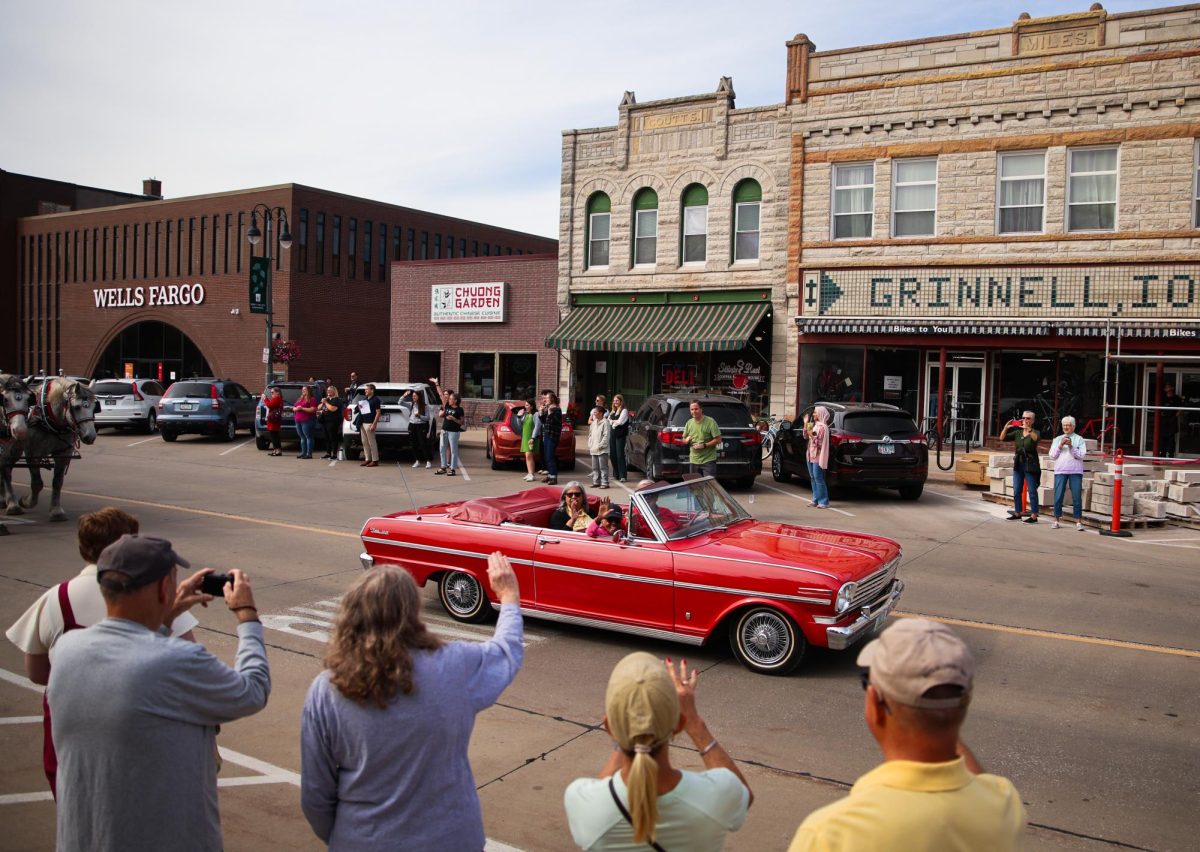The Grinnell Community Theatre production of “The Arsonists” ran this weekend, featuring members of the Grinnell community and college. The story follows ordinary people who are accidentally overcome by arsonists in their city.
“The Arsonists” follows a couple conflicted about hospitality in a time of danger. The protagonist Gottlieb Biedermann, and his wife Babette, are concerned about the arsonists but are too controlled by the social roles they feel they are stuck in to act according to their instincts. Kelly Guilbeau, a career counselor at the Center for Careers, Life and Service who played Babette in the play, spoke about the importance of presenting the damage that conforming to social roles can have.
“I think there’s huge value in challenging the idea of norms or even saying … in a lot of situations we all have the right intention, especially here at Grinnell, to say, ‘No, I would say something. I wouldn’t fall victim to the role or expectation that I’m put in.’ But yet, we all have been in situations where we don’t step up or we don’t intervene,” Guilbeau said.
This play left a lot open to interpretation for the audience members about what exactly was happening, why the characters did what they did and what the characters knew about their situation.
“That’s what’s so great about the play is that nothing is every explicitly said. It’s not saying, ‘Here is the evil that we’re talking about. Here is the type of person that we’re talking about.’ It’s all left up to interpretation to say, ‘I can relate to this,’” Guilbeau said.
Simone Downs ’17, attended the show and found “The Arsonists” to have an interesting message about human nature.
“I think there’s a disconnect about who, when you actually interact with someone and have them around you, you attribute a certain sense of humanity to them [versus] when you feel disconnected to one person, for whatever reason, then you shut them out then they don’t deserve your kindness,” Downs said. “I thought it was interesting how it was ironic that the people he did trust, ultimately burned down his inheritance, his home, his family. … While this man who he worked with and was a trusted colleague, was shut out because he didn’t agree with the business.”
This ambiguity was a topic of conversation among the audience and Guilbeau enjoyed hearing audience reactions during the “Talk Backs” that the cast did with the audience after each show.
“There were some really insightful comments that people made sort of making connections with historical events and what they saw in the play. I was pleased that every now and then people shared their own personal reactions,” Guilbeau said. “I was happy to hear people going there. It’s easy to stay in this head space.”
“The Arsonists” also featured a traditional Greek chorus who spoke in unison and provided context and structure to the performance. They took the form of a group of firefighters who watched over the city to protect it from the arsonists on the loose. This chorus remained on stage during the show and interacted with the other actors and the audience.
“It’s all meant to be sort of [saying] this could be any of you or you be easily in this situation,” Guilbeau said.
The play was performed in the Loft Theatre and Downs enjoyed the way the space was used.
“Their use of lighting and space was really interesting. … I think they did a really cool job of using the space [with the] actors sitting behind you,” Downs said. “It was kind of like you were in the stage as well rather than the actors were separated from the audience.”
The cast will now go on to perform the show at the prison as part of a course being taught by Professor Sigmund Barber, German, as part of the Liberal Arts in Prison Program. This performance will differ from their performance at the Loft Theatre because they will have none of their props or costumes.



















































